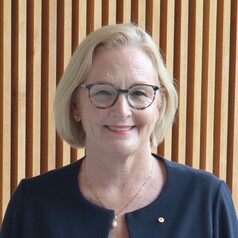
Louise Hickson
Professor of Audiology, The University of Queensland
Louise Hickson, AM, is Professor of Audiology and Executive Dean of the Faculty of Health and Behavioural Sciences at The University of Queensland. Professor Hickson has published over 290 research articles, books and book chapters with her main focus on the effects of hearing loss on people's everyday lives and the development of strategies and interventions that improve the uptake and outcomes of hearing rehabilitation. Professor Hickson is Past President of the International Society or Audiology and a Fellow and Past President of Audiology Australia. She has received numerous awards recognising her contributions to audiology, including the international research award from the American Academy of Audiology, The University of Queensland Leadership Award and a Lifetime Achievement Award from Hearing Australia. In 2021 Professor Hickson was Australia's Leading Researcher in the field of Audiology and Speech and Language Pathology and in 2022 became a Member of the Order of Australia for significant service to tertiary education and audiology associations. She is a sought after speaker and regularly presents at conferences and meetings around the world. She also provides advice to hearing service providers both in Australia and overseas and is committed to improving services for people with hearing difficulties.
Less ![]()
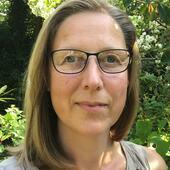
Louise Kenward
PhD Candidate, Centre for Place Writing, Manchester Metropolitan University
Less ![]()
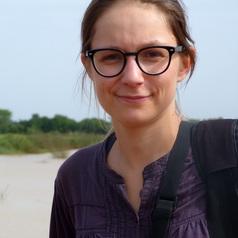
Louise Leroux
PhD, Remote sensing scientist, Cirad
Louise Leroux is a researcher at the CIRAD institute in the AÏDA unit. She is geographer with a strong background in remote sensing applied to agricultural monitoring. Her researches are focused on the use of remote sensing technologies combined with statistical or biophysical modelling to (1) improve the cropping systems descriptions and (2) improve the assessment of agronomical and environmental performances of smallholder cropping systems. Over the last years she worked mainly in West Africa, with a focus on agroforestry systems. She was previously seconded to Centre de Suivi Ecologique in Senegal and she is now based at IITA Nairobi in Kenya where she conducts her research on yield gap assessment in Ethiopia .
Less ![]()
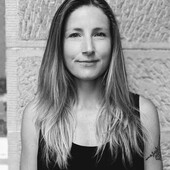
Louise Mewton
Associate Professor, Matilda Centre for Research in Mental Health and Substance Use, University of Sydney
Less ![]()
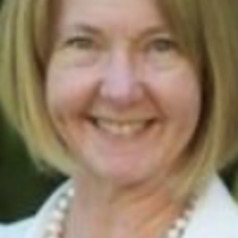
Louise Nash
Associate Professor and Psychiatrist, Brain and Mind Centre, Faculty of Medicine and Health, University of Sydney
Associate Professor Louise Nash is a psychiatrist with expertise in teaching, research and clinical work.
She is the Associate Director of Teaching and Learning at the Brain and Mind Centre of The University of Sydney and consultant psychiatrist with Sydney Local Health District.
She has diverse clinical experience in rural, remote and metropolitan Australia having worked in Darwin, Alice Springs, Dubbo, Orange and Sydney.
Her recent research projects include promoting doctors’ health and wellbeing, improving the junior doctor experience of psychiatry terms, exploring innovative ways to change workplace culture, promoting rural psychiatry training and youth mental health.
Her PhD examined the impact of medico-legal matters on the health and practice of Australian doctors.
Less ![]()
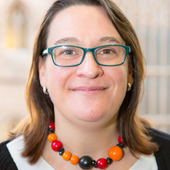
Louise Olliff
Senior Research Associate at the Kaldor Centre for International Refugee Law, UNSW Sydney
Less ![]()
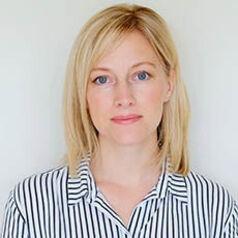
Louise Overton
Associate Professor in Social Policy Director of the Centre on Household Assets and Savings Management (CHASM), University of Birmingham
Louise is an Associate Professor in Social Policy and Director of the Centre on Household Assets and Savings Management (CHASM). Her research interests focus on older people and personal finance (and personal finance-related issues), including financial security, financial advice, and the regulation of consumer financial services.
Louise’s research is strongly empirical, but against a backdrop of welfare privatisation and the individualisation of economic risk, she is also interested in more normative questions concerning the role of, and balance of responsibility between, the state, the market, and the individual for later life financial well-being.
Louise has carried out extensive research on the role and relevance of housing wealth as a source of retirement finance, with a particular emphasis on equity release. Her published work in this area has gained widespread press coverage, and has been used by the Financial Conduct Authority, the equity release industry and its trade body, as well as in the development of Age UK’s Equity Release Advice Service.
Prior to joining the University of Birmingham, Louise worked as a Research Fellow on a major, multi-disciplinary, Leverhulme-funded project: Mind the (Housing) Wealth Gap: Intergenerational Justice and Family Welfare ’at the Universities of Durham and Essex.
Less ![]()
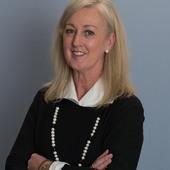
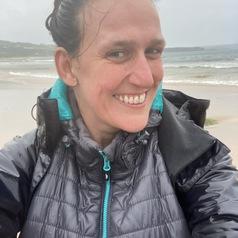
Louise Taylor
Early Career Researcher and Ecotherapist., Queen's University Belfast
Dr Louise Taylor is an Early Career Researcher and therapist committed to working with activists and academics to highlight the importance of mental health, wellness, and equity in the struggle for climate justice. She is passionate about supporting activists on the frontline of environmental struggles, whether in the Sperrin Mountains or in Uganda. Her research uses an Intersectional Ecofeminist perspective to explore the link between health and wellness in a time of climate chaos.
Louise is an activist academic, a mother and a neurodivergent consultant who believes we must embody our work and live in such a way that we make our lives Art. She is a keen writer and enjoys writing poetry as a spiritual and wellbeing practice and she believes that Nature, Art and Music are the greatest healers we have today.
Less ![]()
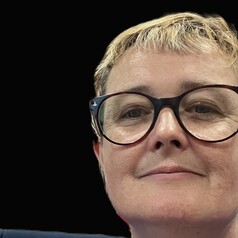
Louise Thompson2
PhD Candidate, Identity of Motorcyclists, London South Bank University
I am a PhD student researching the influence of motorcycle clubs on riding behaviour and risk perception. My interest in this topic was from my own personal experience as a keen motorcyclist and the identity of belonging to a motorcycle club or motorcycle group.
I recently attained my green badge from the Institute of Advanced Motorists (IAM); a member of IAM and the Kent Advanced Motorcyclists Group.
Less ![]()
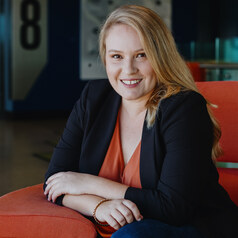
Louise Thornton
Senior Research Fellow, University of Sydney
Dr Thornton is a Senior Research Fellow and Program Lead for Digital Interventions and Engagement at the Matilda Centre for Research in Mental Health and Substance Use at the University of Sydney. She leads a program of research to identify and understand the most effective ways digital technologies can be leveraged to reduce chronic disease risk and improve people’s mental health. Her research primarily focusses on adolescents and young people, and people experiencing mental health problems and she has extensive experience co-designing and evaluating digital health solultions to help people improve their mental and physical health.
Less ![]()
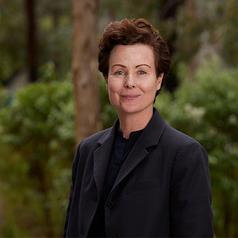
Louise Wright
Practice Professor of Architecture, Monash University
Louise Wright (PhD) is a Director of Baracco+Wright Architects in Melbourne, Australia and Practice Professor of Architecture in the Faculty of Art Design and Architecture at Monash University.
She is interested in a role for architecture that can extend its relationship with the natural world towards one that supports all life and explores this through in her architecture office and practice-based research in the Urban Architecture Lab research unit under the theme Buildings & Living Things.
Since 2019 she has sat on the Design Review Panel of the Office of the Victorian Government Architect and was recently appointed as an ‘expert’ member on the City of Melbourne Design Review Panel. In 2022 she was made a Fellow of the Australian Institute of Architects.
In 2017, Louise was appointed in the role of Creative Director by the Australian Institute of Architects with Mauro Baracco in collaboration with Linda Tegg, of the Australian Pavilion at the 16th International Venice Biennale di Architettura 2018, with the theme Repair, which sought to explore the role of architecture in the repair of the natural environment. In 2019 they were invited by Paola Antonelli to exhibit in Broken Nature at the Triennale di Milano and together they are the guest editors for the recent issue of Antennae: The Journal of Art and Nature with an issue titled Spaces for Species around architecture and nature.
Founded in 2004 with Mauro Baracco, Baracco+Wright Architects are a small experimental architectural practice. Their work sits between academia, practice and multiple creative fields such as art and landscape architecture. They approach projects by thinking through a whole of world view where a building may not necessarily be the solution, placing value on the very occupation of land.
PhD Architecture (RMIT) 2012
Registered Architect
Bachelor Architecture (RMIT)
Less ![]()
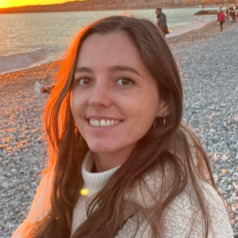
Louise Gillet de Chalonge
PhD Student in Astrobiology, Dublin City University
Louise Gillet de Chalonge has a Bachelor's degree from Aix-Marseille Université and a Master's degree from Sorbonne Université in biology and ecology. She gained research experience in various projects related to astrobiology, including at the French National Museum of Natural History and at the German Aerospace Center. She is now a PhD student at Dublin City University, focusing on astrobiology and origins of life.
Less ![]()
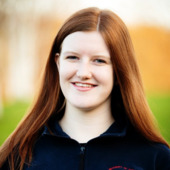
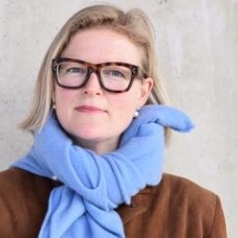
Louise Thanem Wallenberg
Professor, Department of Media Studies, Stockholm University
In my research, which is interdisciplinary, I combine theoretical perspectives, qualitative methods and materials belonging to the areas of fashion studies, film studies, gender studies and queer theory. I am also interested in work life questions and in organizations and I often collaborate with scholars in the Humanities and the Social Sciences.
Less ![]()
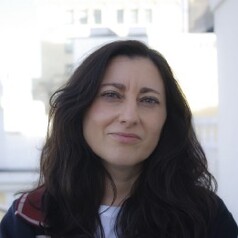
Lourdes Moreno Cazalla
Doctora en Comunicación. Autora del estudio para el Observatorio Nebrija del Español "El boom de la música urbana latina y la expansión del español a nivel global", Universidad Nebrija
Productora ejecutiva, distribución y audiencias en Podium Podcast. Doctora en Comunicación Audiovisual, Publicidad y Relaciones Públicas por la Universidad Complutense de Madrid, Máster en Gestión de Empresas de Comunicación por la Universidad de Navarra y licenciada en Periodismo por la Universidad de Sevilla. Compagina el mundo académico colaborando en grupos de investigación sobre comunicación e impartiendo clases en másteres de comunicación en la Universidad Nebrija de Madrid y Universidad CEU San Pablo de Madrid y Universidad Europea de Madrid. Autora del estudio “El boom de la música urbana latina y la expansión del español a nivel global” para el Observatorio Nebrija del Español.
Less ![]()
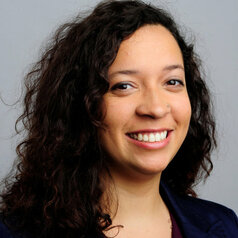
Lourdes Vera
Assistant Professor of Sociology and Environment and Sustainability, University at Buffalo
Lourdes Vera is an Assistant Professor in the Department of Sociology and Department of Environment and Sustainability at UB. As an environmental sociologist and civic scientist, she works with communities living near oil and gas development to monitor their air for contaminants. She also serves on the coordinating committee of the Environmental Data and Governance Initiative, envisioning and building digital tools and research infrastructures for environmental data justice. Her interdisciplinary work spans environmental science, social science, and critical theory with articles appearing in Atmospheric Environment, Engaging Science, Technology, and Society, and Mobilization.
Less ![]()
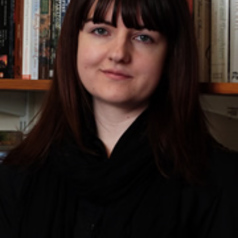
Lowri Ann Rees
Senior Lecturer in Modern History, Bangor University
Dr Lowri Ann Rees is a Senior Lecturer in Modern History at Bangor University. A historian of eighteenth- and nineteenth-century Wales, with a particular interest in landed estates and rural society, she has published on the Rebecca Riots, Welsh sojourners in India, and new wealth and gentry society. She co-edited the volume The Land Agent: 1700-1920 (Edinburgh, 2018), which explores the role of land agents in Britain and its imperial territories.
Less ![]()
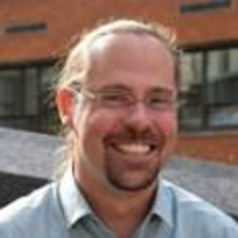
Loÿc Vanderkluysen
Associate Professor of Earth Science, Drexel University
Loÿc Vanderkluysen, PhD, is an associate professor at Drexel University. Professor Vanderkluysen is a volcanologist concerned about how past and present volcanoes and their eruptions have impacted their environment and surroundings. He uses multidisciplinary approaches to study the entirety of the volcanic system, from magma generation to transport and emplacement. He is particularly interested in the cyclicity of volcanic eruptions, volcanic degassing processes, volcanic aerosols, and large igneous provinces. He employs research methods that range from volcano monitoring and thermal remote sensing to high-temperature geochemistry, igneous petrology, and experimental volcanology.
Less ![]()
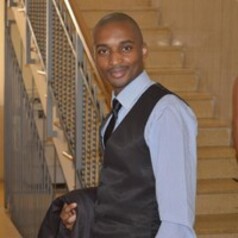
Loyiso Maciko
Lecturer | Health Economist, SAMRC/WITS Centre for Health Economics and Decision Science, University of the Witwatersrand
Dr Loyiso Maciko holds a doctorate in economics and brings more than a decade of academic experience to his role. He has taught a diverse range of courses, including Life, Knowledge and Action, Economics for Public Managers, Public Finance, Public Finance and Budgeting, and Statistics, among others.
Less ![]()
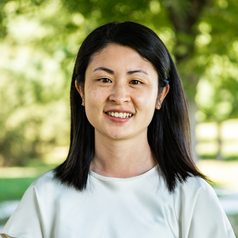
Lu Liu
Assistant Professor of Civil, Construction and Environmental Engineering, Iowa State University
Lu Liu is an assistant professor of civil, construction and environmental engineering. Her research interests include the water-energy-climate nexus, urban water sustainability, human-natural system interactions, and climate change adaptations.
Less ![]()
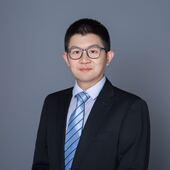
Lu Shen
Assistant Professor, Department of Atmospheric and Oceanic Sciences, Peking University
Less ![]()
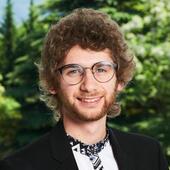
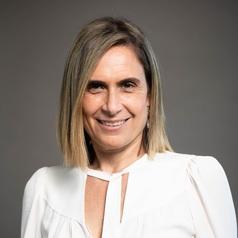
Luana Carcano
Lecturer, Beedie School of Business, Simon Fraser University
Dr. Luana Carcano;s research focuses on design and execution of strategies, management in luxury and premium businesses, differentiation strategies, and on growth and competitiveness strategies. She is the author of numerous books and articles on the subject. Her works have been published in The Journal of Corporate Citizenship, Finanza, Marketing and Produzione e Mestieri d’Arte, among others. She is a board member for the Luxury Research Journal. Luana earned a degree in business administration from Bocconi University, a PhD in economics, marketing and corporate communication from IULM University, and a master’s degree in international management from Bocconi-Esade.
In addition to being a lecturer at the Beedie School of Business she is Academic Director for Undergraduate and Business Minor programs.
Less ![]()
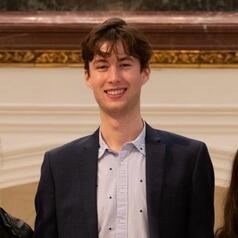
Luc van Vliet
Researcher, Human Geography, University of Amsterdam
I am a researcher with a passion for environmental governance, political and queer ecology, and climate and water justice. I have completed academic degrees in human geography, politics, philosophy, and environmental studies from Australian and Dutch universities. Currently, I work as a researcher for the Global Commission on the Economics of Water (GCEW).
Less ![]()

Luc-André Brunet
Senior Lecturer in Contemporary International History, The Open University
Luc-André Brunet is Senior Lecturer in Contemporary International History at The Open University in the UK and Co-Director of the Peace and Security Project at LSE IDEAS. His research focuses on the dynamics between peace and anti-nuclear activism, on the one hand, and policymaking and diplomacy, on the other. He is Principal Investigator of the AHRC-funded project ‘Global Histories of Peace and Anti-Nuclear Activism’ and is currently completing a book on Canada, the global nuclear order and the end of the Cold War. He is editor of NATO and the Strategic Defence Initiative: A Transatlantic History of the Star Wars Programme and (with Eirini Karamouzi) the forthcoming volume Beyond the Euromissile Crisis: Global Histories of Anti-Nuclear Activism. He also co-edits a new book series with McGill-Queen’s University Press on Global Nuclear Histories.
Less ![]()

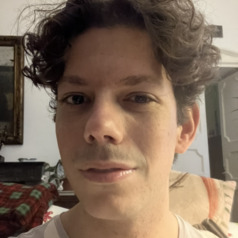
Luca Bernardi
Senior Lecturer in Politics, University of Liverpool
I am a Senior Lecturer (Junior Associate Professor) in the Department of Politics at the University of Liverpool. I joined the Department as a Lecturer in Politics in September 2019. Before moving to Liverpool, I was a Juan de la Cierva-formación Postdoctoral Researcher at the Department of Political Science and Public Law at the Universitat Autònoma de Barcelona and part of the DEC research group. Previously, I was a researcher in the ERC-funded ResponsiveGov Project at the School of History, Politics and International Relations at the University of Leicester, where I obtained my PhD with a dissertation investigating the effects of electoral incentives on government responsiveness to public opinion. I hold an MA (Florence) and a BA (Cagliari) in Political Science. I am a Fellow of the Higher Education Academy.
My research is largely based on quantitative data and I am interested to explore the following research areas and questions:
- Mental health and politics (e.g., how do mental health problems - such as depression, anxiety and stress - influence political perceptions, attitudes, behaviours and decision-making? How does politics affect people's mental health? What are the determinants of policy attention and policy change on mental health?)
- Public opinion and public policy (e.g., to what public opinion signals does policy respond? To what extent do factors such as electoral incentives condition the opinion-policy link? What are the consequences of government (non)responsiveness?)
- Mass-elite linkages (e.g., what are the causes and consequences of voters' perceptions of parties' policy positions? Do voters punish and reward parties for what they say or what they do?)
Less ![]()


Luca Cian
Killgallon Ohio Art Professor of Business Administration, Darden School of Business, University of Virginia
Luca Cian is a full professor at the Darden School of Business, he holds the Killgallon Ohio Art Chair, and is the Marketing Area Coordinator (Department Chair). He is also a visiting senior scholar at Columbia Business School. When he lived in Italy, the Italian Association of Psychology awarded his doctoral dissertation "Best Dissertation" in his division. The Council of Italian University Rectors, the Italian National Research Council, and the Italian Minister of Youth recognized him as one of the best young researchers in Italy. Luca was at the University of Michigan, Ross School of Business from 2010 to 2015 and has moved to the University of Virginia, Darden School of Business since then.
His research area is consumer behaviour, with a focus on visual persuasion, psychological response to artificial intelligence, and social identity. He is also specialized in using different methodologies. He also does biofeedback research, mostly using eye-tracking technology. His most recent research honors include: winner of the Research in Practice Award (American Marketing Association 2021); nominated for the Journal of Consumer Research "Best Paper Award" (2018); top 10% of authors on SSRN by all-time downloads (2018-2022); top 11 most impactful articles in the leading marketing journals selected by the Marketing Science Institute (November 2015 issue); and top 10 most downloaded articles of Journal of Consumer Psychology (September-December 2014). He currently serves on the editorial board of the Journal of Marketing Research.
With respect to teaching, Luca has taught "Marketing," "Consumer Behavior," and "Artificial Intelligence: Psychological Insights" for MBAs and EMBAs at Darden. Luca's teaching has been awarded by Poets & Quants when he was named one of the "40 Most Outstanding Business Professors Under 40, a Global Recognition" in 2019. The Darden Class of 2021 and 2017 voted him as Faculty Marshal (one of the highest recognitions of the school). Finally, he is often in the top 10% of the teaching evaluations of the school.
Luca's passion for diversity is also recognized by the students, as they nominated him for the Faculty Diversity Award (2019, 2021) and for the Theo Herbert International Award for exceptional contributions to the promotion of Darden as an outstanding international business program (2020).
Luca routinely connects with companies and managers. His research has been used by international marketing research companies (e.g., IPSOS) and several institutions (e.g., the New Zealand Tourism Industry Association, the Alaska Research Development and Technology Transfer). Luca has also worked with international corporations (e.g., Electrolux), medium size businesses (e.g. Timavo Ship Supply), and start-ups (e.g., Tropicaux).
Luca has published in the top marketing academic journals, including Journal of Marketing Research, Journal of Consumer Psychology, Journal of Marketing, Nature Communication, and Journal of Consumer Research. Popular accounts of his work have appeared in The New York Times, USA Today, VOX, PBS, The Washington Post, NPR, and others.
Less ![]()
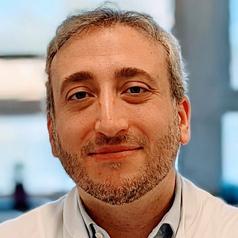
Luca Peruzzotti-Jametti
Senior Research Associate and Honorary Neurology Consultant, University of Cambridge
Luca Peruzzotti-Jametti is a Senior Research Associate, Honorary Neurology Consultant, and Group Leader within the Department of Clinical Neurosciences at Cambridge University (UK), and Honorary Senior Lecturer in the Department of Metabolism, Digestion and Reproduction, Imperial College London (UK).
Luca obtained his MD from the University Vita-Salute San Raffaele of Milan, Italy (2007). He completed a residency program in Neurology at the same University (2013) and a following PhD in Clinical Neurosciences at the University of Cambridge, UK (2018). During his early graduate studies, he was a visiting scientist in major European universities, such as the University Hospital in Zürich (Switzerland), the University of Aarhus (Denmark), the Laboratory of Stem Cells and Restorative Neurology of Lund (Sweden) and the University of Innsbruck (Austria). He later progressed towards a post-doctoral position at Cambridge University (2018) and then became Group Leader within the Cambridge Center for Myelin Repair (CCMR) and Department of Clinical Neurosciences (2020).
Over the last 10+ years, Luca has made key contributions to the understanding of the pathobiology of inflammation in central nervous system (CNS) diseases. His research in regenerative neuroimmunology led to novel experimental advanced therapeutics with neural stem cells, acellular therapeutics (e.g., extracellular vesicles), and small molecules for the treatment of ischemic stroke, spinal cord injury, and progressive multiple sclerosis (MS).
Luca’s most recent work is focusing on cellular metabolism and mitochondria to find novel ways to modulate chronic inflammation and favour CNS regeneration. To this aim, he has developed unique tools to model metabolic/mitochondrial dysfunctions in vitro (using human cells and gene editing techniques) and in vivo (with animal disease models); as well as cutting edge techniques to detect metabolic changes in rodent and human cells and tissues. His multi-disciplinary approach is setting the stage for a new series of interventions that target cell metabolism in immune cells, as the next opportunity to promote the healing of the persistently inflamed CNS.
Luca’s laboratory activity is documented in >60 PubMed indexed publications - including Cell Stem Cell, New England Journal of Medicine, Nature Medicine, and Nature Chemical Biology - which have received >8,300 citations, having a Hirsch Factor of 27.
Less ![]()
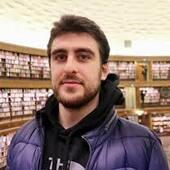
Luca Stroppa
Postdoctoral fellow ("borsista di ricerca) at the University of Turin, former Postdoctoral Fellow on the project "Early Diagnosis - Handling Knowing", University of St Andrews
Less ![]()
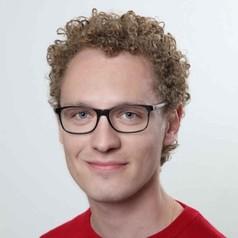
Lucas Berard-Chenu
Enseignant-chercheur en géograpgie à l'Institut conjoint de l'Université de Ningbo (Chine) et d'Angers, Université d'Angers
Docteur en géographie. Je m’intéresse à l’évolution des systèmes touristiques
Less ![]()
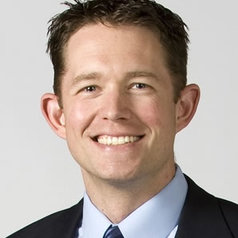
Lucas Davis
Associate Professor, University of California, Berkeley
Lucas Davis is an Associate Professor at the Haas School of Business and Faculty Director at the Energy Institute at Haas. Prior to joining Haas in 2009, he was an Assistant Professor of Economics at the University of Michigan. His research focuses on energy and environmental markets, and in particular, on electricity and natural gas regulation, pricing in competitive and non-competitive markets, and the economic and business impacts of environmental policy. His work appears in leading academic journals including the American Economic Review, the RAND Journal of Economics, and the Journal of Political Economy.
Less ![]()
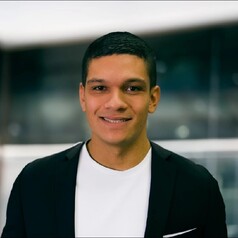
Lucas de Brito Ayres
PhD Candidate in Chemistry, Clemson University
Lucas earned his bachelor in Pharmacy-Biochemistry from the University of Sao Paulo (Brazil) and has already worked with Drs. Do Lago and Gutz on analytical Instrumentation, specifically by developing chemical instruments based on open-source technologies (e.g. Arduino, 3D printers and Android). He is currently pursuing his PhD in Chemistry and is interested in continuing working with low-cost sensors, instrumentation, and automation.
Less ![]()
- Market Data





















